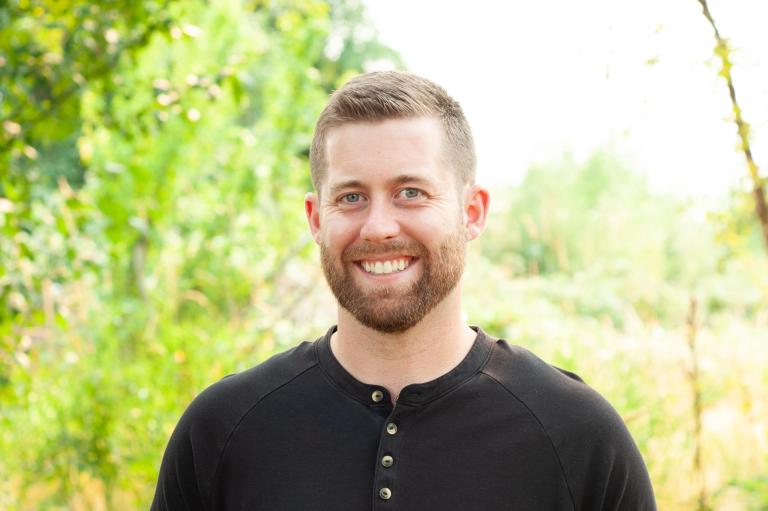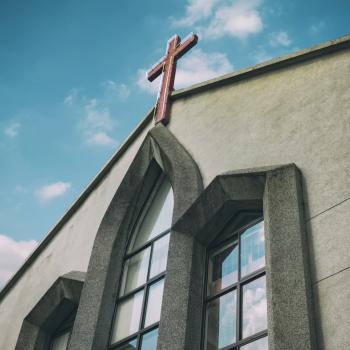
Whether I knew it or not, this question has been bouncing around in my head for quite awhile: what are we celebrating at Christmas?
When I was a child, the answer seemed so simple: presents! And if I were really pressed about it, I might mention something about the birth of Baby Jesus.
But as I’ve grown up, neither of these answers work much for me anymore. Every year, receiving presents seems less and less a priority, giving them feels an obligation, and the emphasis on Baby Jesus stopped making sense to me long ago. I still love the season, and the eggnog lattes, but I admit I’ve often felt distant from the “reason for the season.”
The Theology Behind Christmas
Despite growing up in a progressive church, my understanding of Christmas was still quietly formed by the same atonement theology that forms conservative Christianity as well.
(In my opinion, that’s one of the Achilles Heels of progressive Christianity; in an attempt to run away from conservative theology, there’s been a creative failure to offer the world a radically different vision of the Divine.)
The songs, prayers, and call-and-responses, if not always the sermons (for which I am thankful), contextualized the story of Jesus’ birth somewhat like this:
In the beginning, the Universe was created by God and everything was good. Then we humans started messing things up and in response, God had to show up and put the whole thing back together. God did this by appearing as a Jewish man named Jesus to be a problem-solver: the ultimate duct tape. On Christmas, we celebrate this moment of incarnation.
If this is the great celebration of Christmas, the manifestation of God as a problem-solver, I just don’t think there’s much to celebrate. Within this narrative, God’s decision to enter into the direct experience of humanity doesn’t seem to be based on wanting a loving relationship with us, but wanting to fix an issue.
This story turns the Divine, that which is supposed to be everywhere and eternal, into no more than a magical plumber, showing up when leaks appear.
And worse, in this story, I wonder about the more than 13 billion years before God showed up in Jesus. Did God create the world and then leave to do something else for a while? Was God just sitting back and watching as everything “went downhill”? Was God nothing more than a passive TV viewer?
In shrinking the presence of the Divine into a singular moment, and one not that long ago, we make incarnation into a one-time, magic trick. We doom most of the Universe’s history and ultimately the present and the future as well. We’re saying that God sometimes just doesn’t show up, so we should definitely celebrate when God does.
Ultimately, I don’t think this is the story of Christmas.
I’m much more attracted to a story of Christmas about how the Divine flows through the world with all of us – each of us in our own unique ways – as its divine messengers.
In this story, the incarnation isn’t about a singular moment of a far-off God manifesting Godself here on Earth; rather, the incarnation becomes the best word we have for the experience of the Divine flowing through each of our lives.
This story allows us to celebrate the truth of Jesus’ birth and his divinity, while not stopping there as if it’s an isolated event! Christmas becomes the celebration of what “being made in God’s image” really means! It means we each have divine DNA within us.
I recently sat down with my dad, Rev. Rich Lang, and had a conversation about all of this.
As he has gotten older, I’ve witnessed changes in where he places his theological focus; his emphasis on what he once called Left Wing Jesus (which I’ve spoken about here) has shifted toward a more contemplative approach to the Divine. Whereas he once focused on railing against the Empire during the Christmas season (referring to most Christmas sermons as “fluff”), he now speaks of Advent and Christmas as opportunities for us to go on an inward journey. (This inward journey is what makes our political and social engagements truly authentic and sustainable in the long run.)
During our conversation, one moment in particular stood out to me. He says that what incarnation is really all about is how “the eternal, infinite, overflowing majesty of incredible Love and Compassion – that goes beyond all of our binaries and dualisms and political systems – is in the world and it’s in the world through us. We’re the temples through which God is being embodied on Earth.”
If this is what incarnation is really about, we can celebrate the birth of Jesus just as we celebrate the birth of all new life on Earth.
In this story, Christmas is ultimately about more than just Jesus; it’s about all the ways the Divine is showing up in the Universe. Because really, God doesn’t come into the Universe from far away; God’s incarnation here means the Divine is always right here, right now.
And if everything is steeped in the presence of the Divine, we each have a responsibility to seriously reassess how we treat each and every part of the world around us – including ourselves.
How have you experienced the presence of the Divine in your life?
If every person has inherent dignity and divine DNA within them, which of your behaviors and/or approaches to social engagement might need to change to honor that truth?













